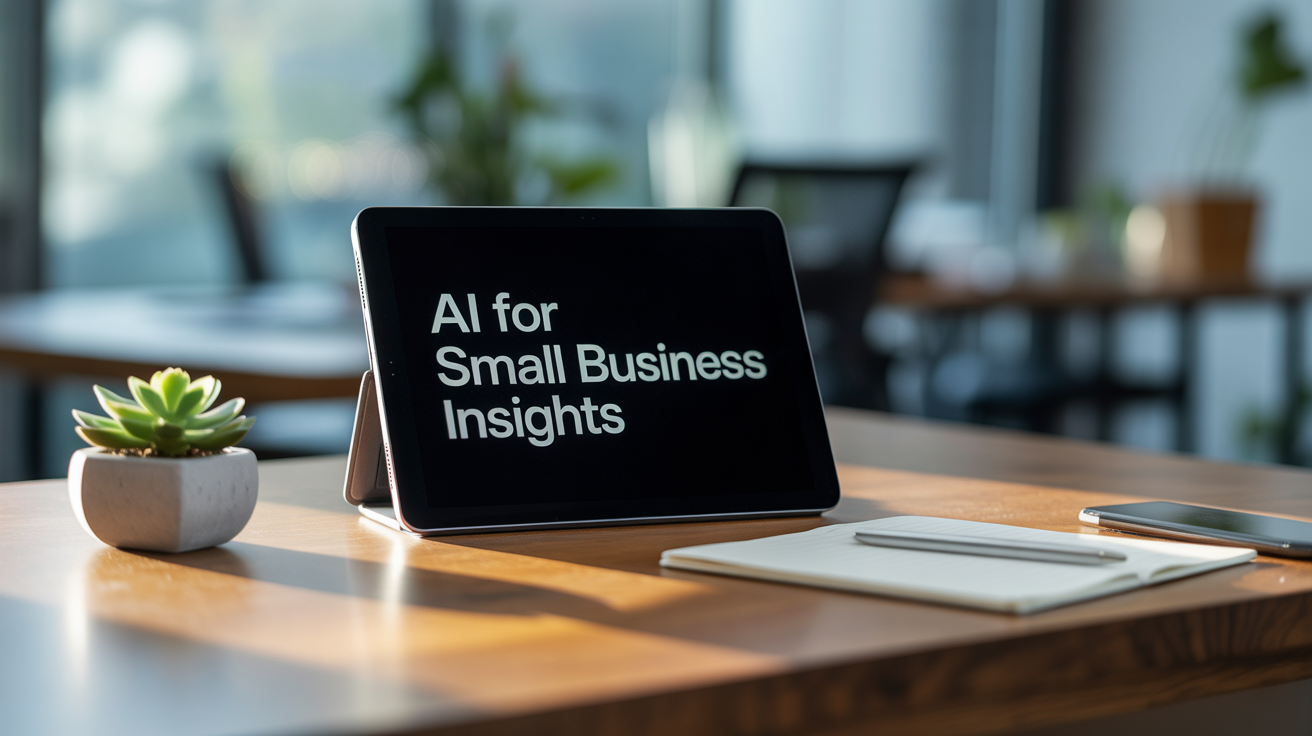
Unlocking small business potential with AI insights
Small businesses are increasingly turning to AI technologies to gain valuable insights that drive growth, efficiency, and competitive advantage. From customer behavior analysis to operational optimization, AI tools offer affordable and scalable solutions tailored specifically for smaller enterprises. This article explores how AI can transform the decision-making process, enhance marketing strategies, and streamline operations for small businesses by harnessing data effectively. Understanding these applications helps business owners adapt quickly to changing markets and identify opportunities that might have been overlooked. Let’s dive into the key areas where AI-generated insights are empowering small businesses today.
Harnessing customer data for tailored marketing
One of the most impactful uses of AI for small businesses lies in analyzing customer data to create personalized marketing campaigns. AI algorithms process large volumes of customer interactions, social media behavior, and purchase history to segment audiences and predict preferences.
With tools like HubSpot Marketing Hub or Mailchimp, small businesses can automate email campaigns, recommend products, and optimize ad spend. This means marketing efforts become more targeted and cost-efficient, delivering a higher return on investment (ROI).
Operational insights through AI-driven analytics
Beyond marketing, AI can analyze operational data to identify inefficiencies and suggest improvements. Small businesses often face resource constraints that make it essential to optimize workflows and inventory management. AI-powered platforms like Tableau or Microsoft Power BI convert raw data into interactive dashboards, helping entrepreneurs monitor sales trends, customer feedback, and supply chain logistics in near real-time.
This holistic visibility enables quicker adjustments and informed decisions that reduce costs and improve service quality.
Enhancing financial forecasting with machine learning
Accurate financial forecasting is critical but can be challenging for small businesses lacking dedicated analytics teams. Machine learning algorithms can analyze past revenue, expenses, and market trends to provide predictive forecasts that assist in budgeting and cash flow management.
Tools like Fathom and QuickBooks Advanced integrate AI features that alert users to potential financial risks or opportunities well in advance. This empowers owners to plan proactively, secure funding, or adjust operations before problems arise.
The future of AI insights for small business growth
The ongoing advances in AI technology mean that small businesses will continue to benefit from increasingly sophisticated insights without the need for extensive technical expertise. As cloud-based AI tools become more accessible and affordable, even micro-businesses can leverage data intelligence to compete with larger players.
Investing in AI-driven insights is not just about technology adoption but about fostering a culture of data-informed decision-making. Businesses that embrace this shift will be better equipped to innovate, adapt, and thrive in an ever-evolving marketplace.
| AI tool | Main use | Key benefit |
|---|---|---|
| HubSpot Marketing Hub | Customer segmentation and marketing automation | Higher engagement and optimized marketing spend |
| Tableau | Data visualization and operational analytics | Improved decision-making from real-time insights |
| Fathom | Financial forecasting and reporting | Proactive cash flow and risk management |
| Mailchimp | Email marketing personalization | Automated campaigns with higher ROI |
Conclusion
AI for small business insights offers transformative opportunities that extend across marketing, operations, and finance. By leveraging affordable AI-powered tools, small businesses can extract meaningful data patterns, forecast future trends, and personalize customer engagement with greater precision. The result is not only enhanced efficiency but also a stronger ability to anticipate market shifts and innovate accordingly. As AI becomes more embedded within everyday tools, its role as a catalyst for small business growth will only intensify. Ultimately, success depends on both adopting the right technology and cultivating a mindset oriented around continual learning and data-driven decisions.
For entrepreneurs ready to embrace this future, the path forward is clear: use AI insights to inform every facet of your business strategy and stay ahead in a competitive landscape.
“In God we trust. All others must bring data.” – W. Edwards Deming
